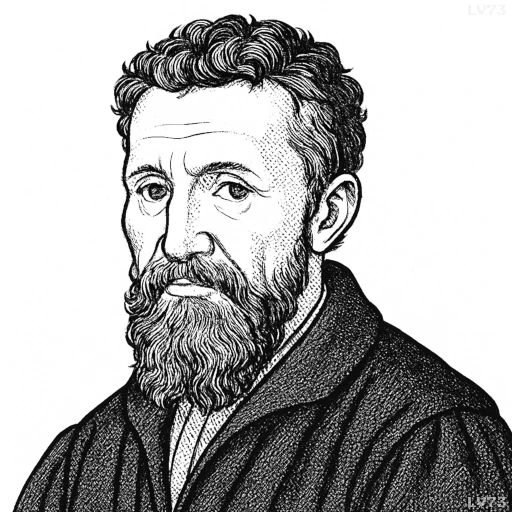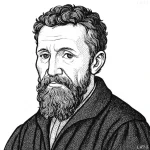“It is well with me only when I have a chisel in my hand.”

- March 6, 1475 – February 18, 1564
- Born in the Republic of Florence (now Italy)
- Sculptor, painter, architect, poet
table of contents
Quote
“It is well with me only when I have a chisel in my hand.”
Explanation
In this quote, Michelangelo expresses the deep sense of fulfillment and purpose he derives from his work as a sculptor. The “chisel” symbolizes his craft and the act of creation, suggesting that his true happiness comes not from external circumstances or leisure, but from the act of making—from engaging directly with his materials to bring his visions to life. For Michelangelo, the chisel is not just a tool, but an extension of his will and creativity. It is through this act of creation that he feels most in alignment with his inner self and purpose, underscoring the idea that true satisfaction and peace come from dedicating oneself fully to one’s artistic or creative passion.
This sentiment speaks to the broader idea of work as both a vocation and a source of personal fulfillment. In modern times, many individuals find the same kind of satisfaction in their work, whether in the arts, sciences, or other professions. For example, writers, musicians, or entrepreneurs often describe a deep sense of contentment when immersed in their craft. It reflects the idea of intrinsic motivation, where the act of doing the work itself is the reward, rather than any external recognition or reward. Michelangelo’s words suggest that true happiness lies in following one’s calling, regardless of the external pressures or challenges.
The quote also highlights the Renaissance ideal that the artist’s work is not just a job, but a form of self-expression and a way of connecting with something larger than oneself. For Michelangelo, art was a means of communicating the divine and the human condition, and his deep connection to his chisel symbolizes his commitment to this higher purpose. In this sense, his fulfillment comes not just from technical mastery, but from the deeper calling to create work that is both beautiful and meaningful. This connection between the artist and their craft is something that has remained central to the artist’s identity throughout history, where the work becomes not just a livelihood, but a way of being.
Would you like to share your impressions or related stories about this quote in the comments section?
